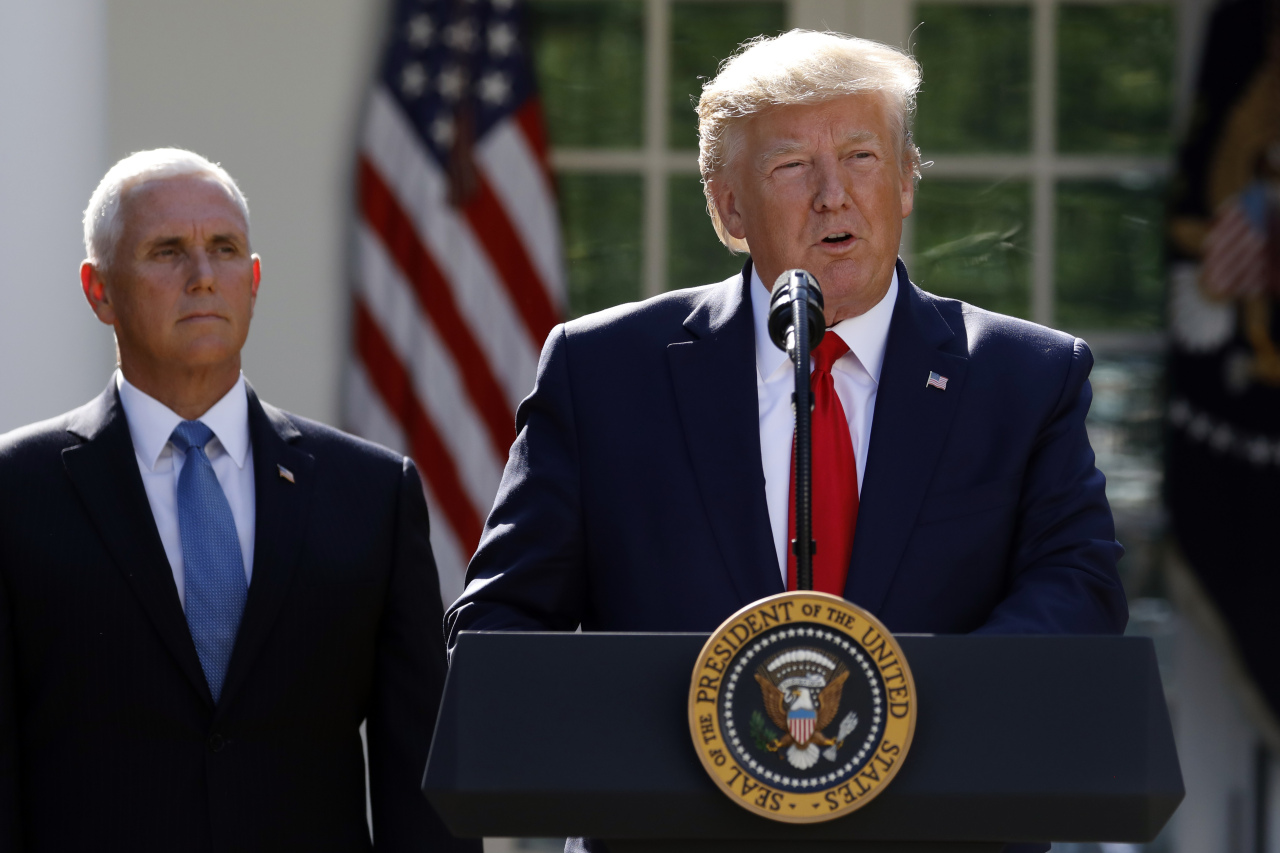US President Donald Trump said Wednesday that the United States spends "a lot of money" to help South Korea and other allies without getting much in return.
The issue of getting allies to contribute more to shared defense has been a favorite theme of Trump's both before and after his election.
But the latest remark comes as Seoul and Washington are due to launch negotiations soon on renewing a cost-sharing agreement for the upkeep of 28,500 American troops stationed in the South, indicating the US president intends to press Seoul to hike its contributions.

"We have a lot of very strong allies. We are doing a lot of allies very big favors by even being over there," Trump said when asked how the US would respond if China decided to close down the South China Sea.
"We're spending a lot of money to help Japan. We're spending a lot of money to help South Korea, the Philippines. We spend a lot of money to help a lot of people," he said. "In many cases, in some cases, but many cases, these people don't do so much for us, but we are helping a lot of people throughout the world that have never appreciated it. We've never had a leader that demanded that they appreciated it. I'm saying you have to appreciate it."
Last month Trump tweeted that South Korea and the US had begun talks to renew the Special Measures Agreement and added that the South "agreed to pay substantially more money to the United States in order to defend itself from North Korea."
South Korea's foreign ministry issued a statement saying the negotiations had yet to begin.
Under this year's SMA, Seoul agreed to pay 1.04 trillion won ($862 million), an increase of 8.2 percent from the previous year.
The US troop presence dates back to the 1950-53 Korean War, which ended in an armistice, not a peace treaty. Analysts have said it serves US strategic interests by not only deterring North Korean aggression but also countering China's military rise. (Yonhap)








![[Graphic News] More Koreans say they plan long-distance trips this year](http://res.heraldm.com/phpwas/restmb_idxmake.php?idx=644&simg=/content/image/2024/04/17/20240417050828_0.gif&u=)
![[KH Explains] Hyundai's full hybrid edge to pay off amid slow transition to pure EVs](http://res.heraldm.com/phpwas/restmb_idxmake.php?idx=644&simg=/content/image/2024/04/18/20240418050645_0.jpg&u=20240419100350)






![[From the Scene] Monks, Buddhists hail return of remains of Buddhas](http://res.heraldm.com/phpwas/restmb_idxmake.php?idx=652&simg=/content/image/2024/04/19/20240419050617_0.jpg&u=20240419175937)

![[KH Explains] Hyundai's full hybrid edge to pay off amid slow transition to pure EVs](http://res.heraldm.com/phpwas/restmb_idxmake.php?idx=652&simg=/content/image/2024/04/18/20240418050645_0.jpg&u=20240419100350)

![[Today’s K-pop] Illit drops debut single remix](http://res.heraldm.com/phpwas/restmb_idxmake.php?idx=642&simg=/content/image/2024/04/19/20240419050612_0.jpg&u=)